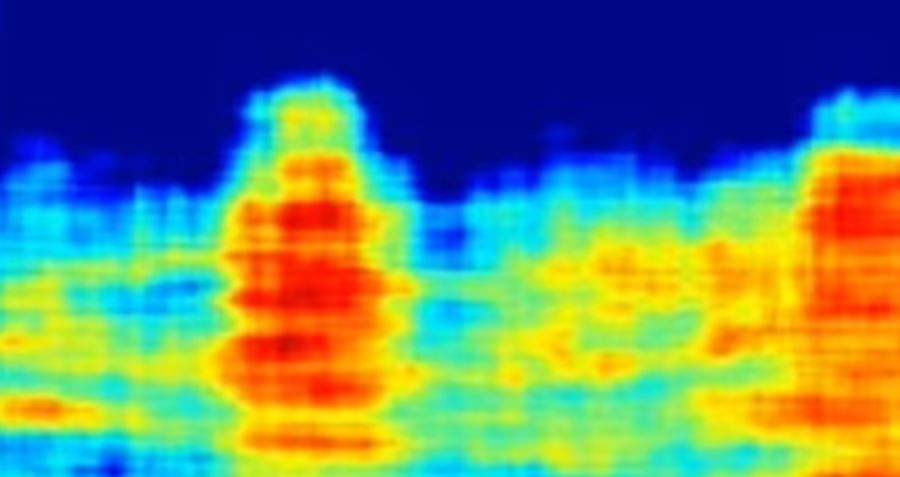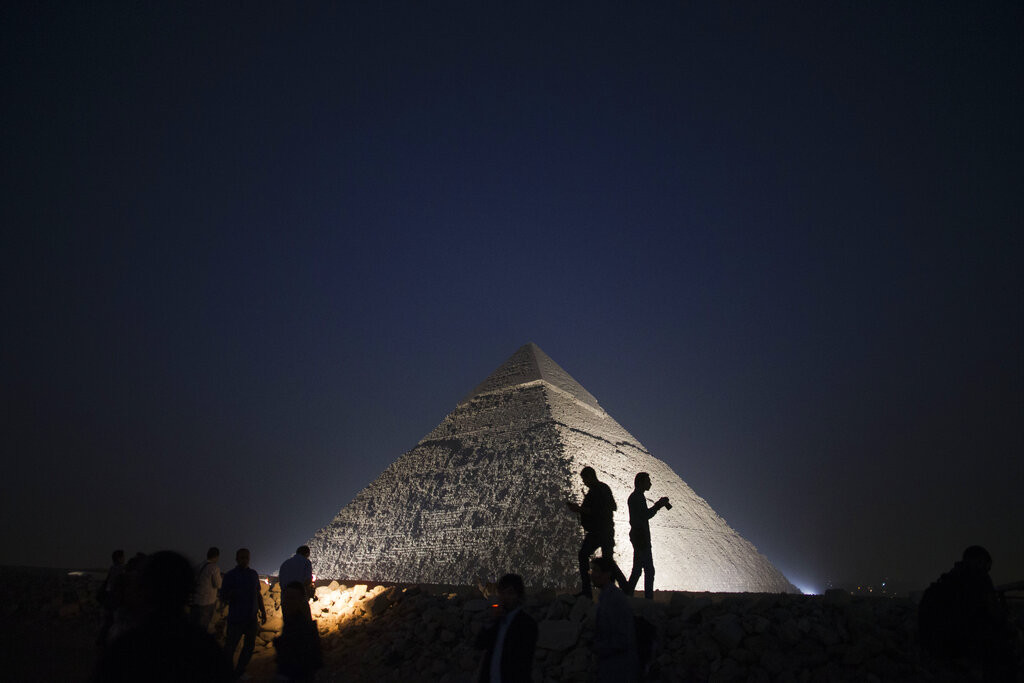Are there actually underground libraries that enclose all the knowledge of Egyptian culture under the pyramids in Egypt?
International controversy within the scientific community has been triggered by the theory of an underground ancient library under the pyramids of Giza.
Using radar waves, scholars claim to have found mysterious cylindrical objects at a depth of more than 2,000 feet under the 4,500 -year -old Khafre pyramid in the Giza complex in Egypt.
This has triggered speculations that the pyramid is above the infamous ancient library, a legend theory that is often associated with ancient Egyptian tradition.
Some believe that this library, also known as Hall of Records, contains huge amounts of lost wisdom and knowledge for the famous ancient culture.
But is there really?
Speaking to MailOnline, Dr. Roland Enmarch, an Egyptian scholar at the University of Liverpool, stressed that the idea “is very much science fiction, but it is certainly not a scientific event”.
“I will believe that something exists when the balance of reliable evidence proves that this exists or existed once,” he told MailOnline.
The first person to use the term “Hall of Records” was Edgar Cayce, an American “therapist” who dealt with metaphysics and the study of ancient cultures, including ancient Egypt, El Dorado and Atlantis.
However, his theory was not accepted by the scientific community.
Dr. Nicholas Brown, an Egyptian at the University of Yale who has just published a new study on the Tutankhamen tomb, told MailOnline that “there is no such thing” as the Hall of Records.
He compared it to Atlantis – the most famous fantastic island in the world invented by the Greek philosopher Plato 2,300 years ago.
“There is certainly no evidence of Hall of Records from ancient Egypt and is associated with Atlantis, for which there is also no tangible proof that it is true,” he told MailOnline.
“I base my job on tangible facts and facts, so I usually get tired of these pseudo -scientific claims.”
Dr. Melanie Pitkin, an Egyptian at the University of Sydney, also says that Hall of Records does not exist and downgraded the alleged findings under the Khafre pyramid.
“There are no ancient archaeological, artistic or literary elements that support such a claim,” he told MailOnline.
Meanwhile, Dr Jane Draycott, lecturer of ancient history at the University of Glasgow, said there was no “no -base” in the myth.
On the contrary, he claims that scientists should focus on their efforts elsewhere.
“There are many surviving temples libraries, or at least their remnants, so scientists are good to focus on them,” he told MailOnline.
He also called the supposed new findings under the Khafre pyramid “complete and absolute nonsense”.
He also stressed that in order to have a scientific existence, they should have been published in a scientific journal, a process that includes evaluation by independent experts.
The findings were described by two Italians – the Corrado Malanga and Filippo Biondi, who are alleged to be academics from the University of Pisa and the University of Strathclyde in Scotland, but without their work in the science industry.
They published a 2022 text about their work using radar to explore the Giza pyramid.
Pictures of scans seem to come from a presentation they made a few days ago in Bologna.
Having made a front page on the weekend, their allegations of huge underground libraries have been widely deceived by academics.
Dr. Zahy Hawass, archaeologist and former Minister of Tourism and Antiquities of Egypt, called them “false news” from a “group of amateurs”.
“All this information is completely wrong and have absolutely no scientific basis,” he said on a Facebook post on Sunday.
“The Ministry of Tourism and Antiquity did not allow individuals or institutions to work inside or outside the second pyramid.
“In addition, the claim that radar was used in the pyramid is false.”
“These people who announced this incorrect information have used techniques that are not approved or validated and the details announced would never have been understood using this technique.”
Dr. Draycott added: “I am suspicious of people who claim to be linked to academic institutions without this actually trying to get into areas where they do not have sufficient academic specialization and claim that they suddenly discovered something that everyone else has not seen.”
“Until it is verified by people with the necessary know -how and credentials, what they support is pseudoscience and conspiracy theory.”
Scientists Claim to Have Uncovered Mysterious Structures Beneath the Khafre Pyramid, Reigning the Age-Old Legend of the Hall of Records-A Supposed Vault of Ancient Egyptian Wisdom! 📜
➡️ https://t.co/7r1wbqmj1e#Pyramid #Gizapyramid #Khafrepyramid #Hallofrecords pic.twitter.com/lgfdhdy9a8– Ashraful Islam (@Ashraf__3) March 26, 2025
Source :Skai
I am Frederick Tuttle, who works in 247 News Agency as an author and mostly cover entertainment news. I have worked in this industry for 10 years and have gained a lot of experience. I am a very hard worker and always strive to get the best out of my work. I am also very passionate about my work and always try to keep up with the latest news and trends.












